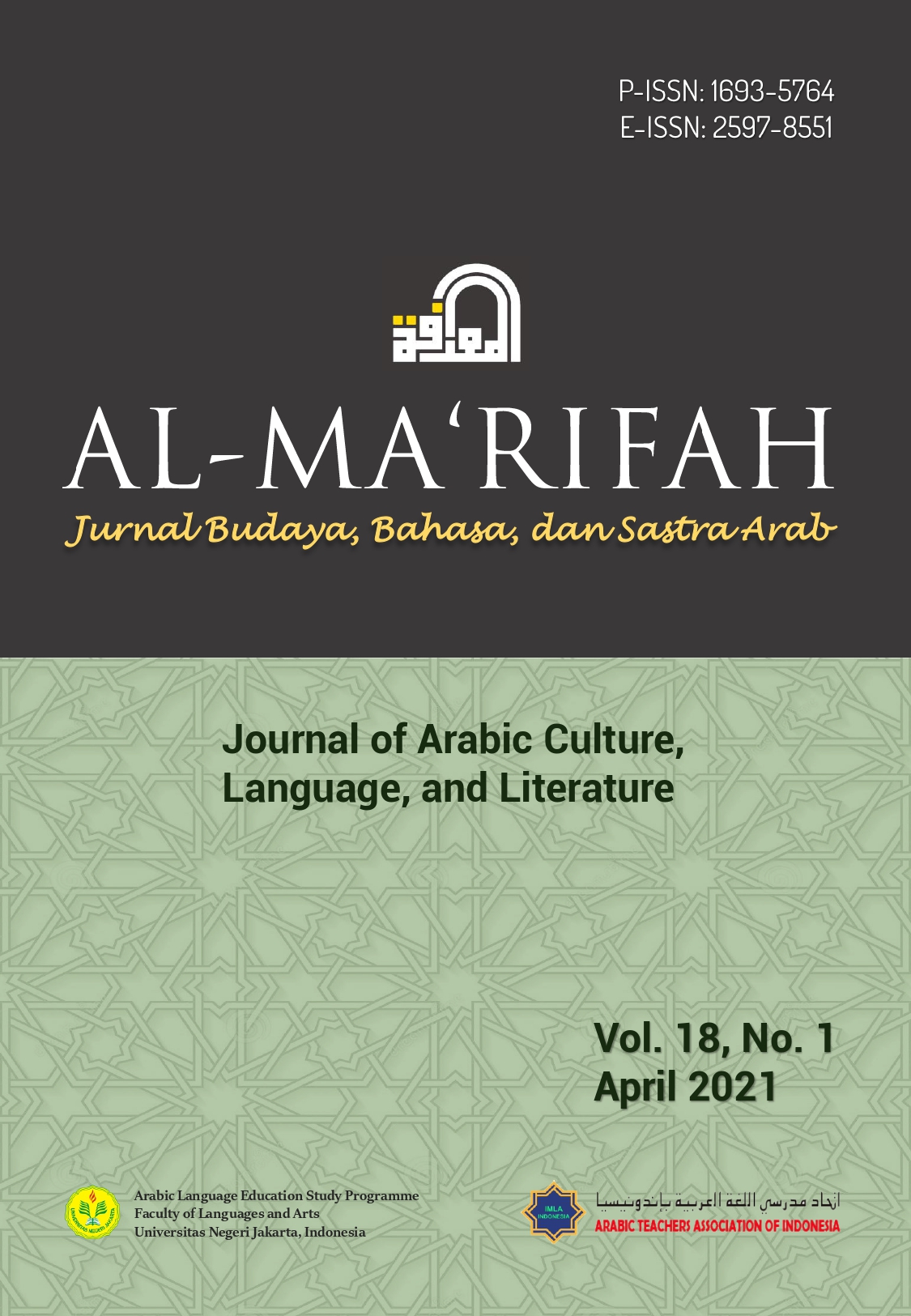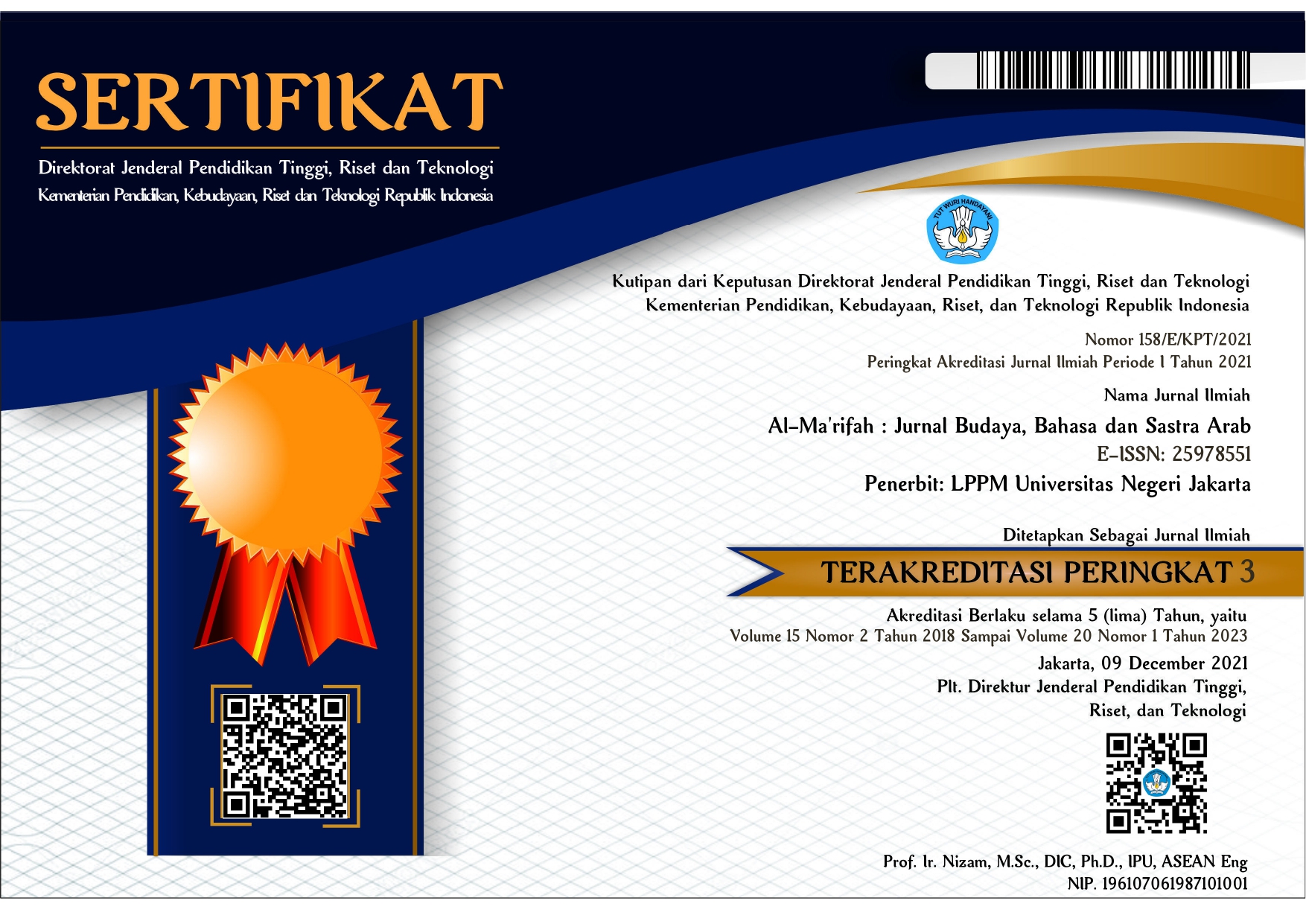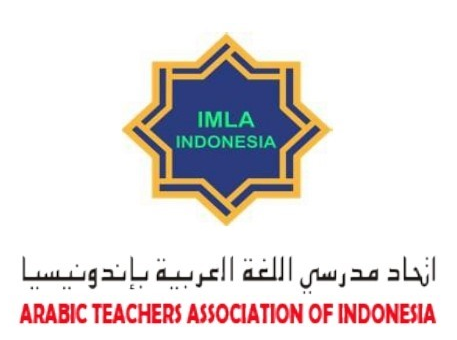Tarqiyat Natā’ij Ta‘allum al-Lughah al-‘Arabīyah bi-Istikhdām Uslūb al-Thawāb wa-al-‘Iqāb
DOI:
https://doi.org/10.21009/almakrifah.18.01.08Keywords:
Reward and punishment, learning outcomes, Arabic learningAbstract
This study aims to determine the improvement of Arabic learning outcomes using rewards and punishments. The research used an action research method by Kemmis and McTaggart model and was carried out in two cycles. The research subjects were grade 7 students of SMP Muhammadiyah 3 Jakarta, totaling 36 students including 19 male students and 17 female students. The instruments used tested learning outcomes and observation sheets. Learning outcome tests are used to measure the success of students in understanding Arabic lessons. Meanwhile, the observation sheet is used to measure the performance of teachers and students in learning. The scores that have been achieved by the students during the study are the pre-cycle score is 65,83, the exam score for cycle 1 is 66,80, and the exam score for cycle 2 is 75,69. There was an increase in the value from the pretest to the test cycle 1, namely 0,99, and the increase from cycle 1 to cycle 2 is 8,89. The number of improvement results in this study was 9,88. By using reward and punishment, students are more active in learning and can relate the subject matter to the surrounding environment and practice it directly in the classroom.
References
‘Awād, ‘I. N. (2013). Muḥāḍarāt fī ta‘dīl al-sulūk. Amman: Dār al-Yazūrī al-‘Ilmīyah li-al-Nashr wa-al-Tawzī‘.
Bā Bakr, M. Ḥ. (2014). Fā‘iliyat istikhdām al-idārah al-madrasīyah li-asālīb al-thawāb wa-al-‘iqāb wa-ittijāhātihim naḥwihā: Dirāsah marḥalat al-asās bi-wilāyat al-Qaḍārif. Dirāsah Tarbawīyah, 3, 12–48. Retrieved from http://dspace.iua.edu.sd/xmlui/handle/123456789/103
Ḥassānīn, ‘A. M. M. (2013). Sīkūlūjīyat al-ta‘allum: Naẓarīyāt, ‘amalīyāt ma‘rifīyah, qudrāt ‘aqlīyah. Cairo: al-Maktabah al-Akādimīyah.
Kemmis, S., & McTaggart, R. (1988). The action research planner (3rd ed.). Geelong: Deakin University.
Malik, B. (2004). Khayr al-umūr al-wasṭ, al-tawjīh: al-Thawāb wa-al-‘iqāb. In Silsilat tarbiyat al-abnā’ al-rābi‘ah. Kuwait: al-Amānah al-‘Āmmah li-al-waqāf, al-Ṣundūq al-Waqfī li-al-Tanmiyat al-‘Ilmīyah wa-al-Ijtimā‘īyah.
Nurcahyaningtyas, R. U. (2015). Peningkatan hasil belajar IPA melalui metode pembelajaran eksperimen dengan reward and punishment siswa kelas VA SD Negeri Tegalpanggung Yogyakarta. Universitas Negeri Yogyakarta. Retrieved from http://journal.student.uny.ac.id
Rosyid, M. Z., & Abdullah, A. R. (2018). Reward & punishment dalam pendidikan. Batu: Literasi Nusantara.
Ṣāliḥī, S. (2002). Athar al-‘iqāb ‘alá dāfi‘īyat al-injāz ‘inda talāmīdh al-sanah al-thāminah asāsī: Dirāsah muqāranah bayn al-dhukūr wa-al-ināth (Master’s thesis). Jāmi‘ah al-Jazā’ir, Algeria.
al-Shaybānī, ‘U. M. (1982). Min usus al-tarbiyah al-Islāmīyah. Cairo: Dār al-Nahḍah al-‘Arabīyah.
‘Umar, A. M. (2008). Mu‘jam al-lughah al-‘Arabīyah al-mu‘āṣirah. Cairo: ‘Ālam al-Kutub.
Downloads
Published
How to Cite
Issue
Section
License
Copyright (c) 2021 Muhammad Kamal Bin Abdul Hakim, Chakam Failasuf, Lulu Mauliadana

This work is licensed under a Creative Commons Attribution 4.0 International License.











